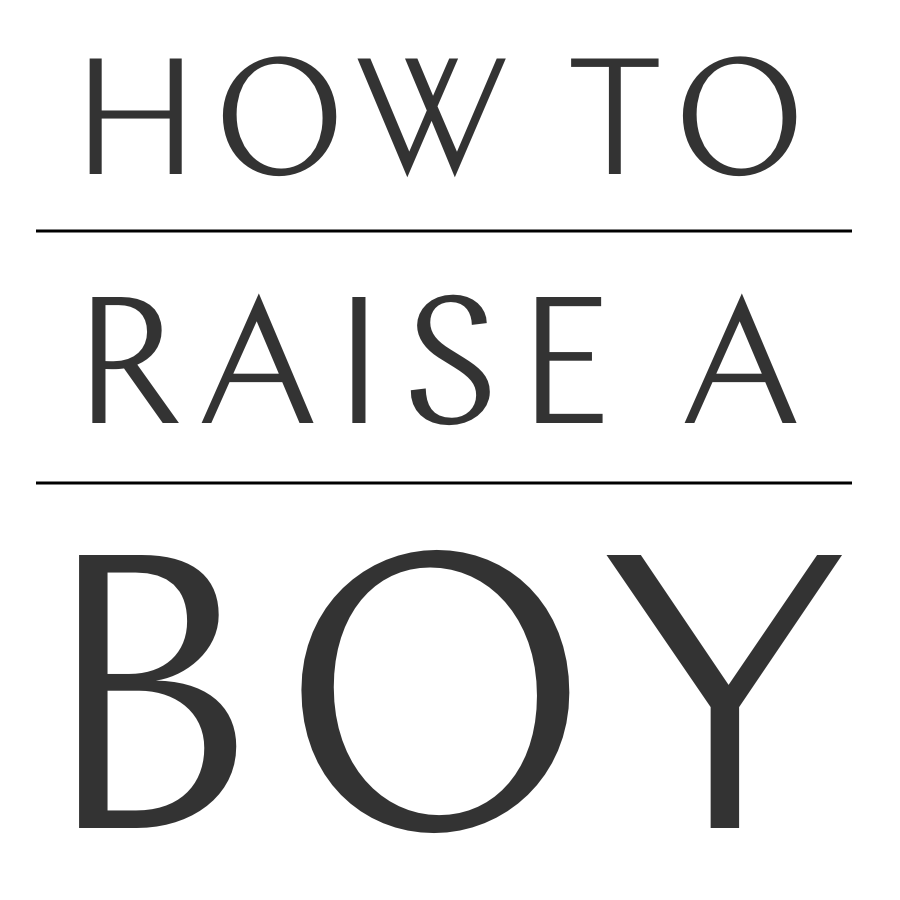
How to Raise a Boy is a weeklong series centered around this urgent question in the era of Parkland, President Trump, and #MeToo.
Maybe if Dylan hadn’t been so distraught he wouldn’t have drunk so much. Earlier in the day, he’d visited a friend in the hospital who’d been in a car accident and he was a little freaked out by the boy’s pain. So when he got to the party, a typical Friday night rager, he knocked back nine, okay, maybe ten shots of vodka. Then again, maybe he would’ve done that anyway. He was a junior in high school, a straight-A student, star of the soccer team. He ran with a good-looking, athletic, popular crowd, the kind of kids who defined success by acceptance to the narrowest slice of elite colleges. They worked hard. So when the weekend came, who could blame them for wanting to blow off a little steam: drinking, smoking weed, hooking up.
Dylan dropped onto a couch, the alcohol overwhelming him, and immediately passed out. That’s where Julia found him. The two had become friends earlier that fall: She was funny and friendly and Dylan considered them to be pretty close. She shook him awake, at least long enough to drag him, stumbling, to the bathroom.
After that, Dylan’s memory fractures. He recalls Julia, who was sober, fumbling with his pants. Julia, touching his penis. He must’ve gotten an erection, though he doesn’t remember that. His head ached, that he can say for sure. And then … nothing. “I had to call her the next day and — oh, God — ask if we’d had sex,” he told me.
She said they had.
“I didn’t want to do that!” Dylan said. He’d never had intercourse before. He’d wanted the first time to be special.
“Oh, please,” she shot back. “Don’t give me that shit. All guys want it.”
I’ve spent the last seven years interviewing high-school and college students about sex and emotional intimacy — the last year-and-a-half talking exclusively to boys. Of course, we discussed sexual violation. I’d assumed, at least for heterosexual boys, that we’d talk about what they thought it meant to get consent from a girl, how they’d define assault. What surprised me was how often the boys brought up their own experience of unwanted sex: encounters in which girls did not respect “no” or, as with Dylan, took advantage of them when they were drunk.
I want to be clear: Girls bear the brunt — both physically and psychologically — of sexual harassment, assault, and rape, but they’re not its exclusive targets. Middle- and high-school-aged boys report being the victims of dating violence, including physical abuse, at rates similar to girls. In a 2015 study, 43 percent of high-school and college boys said they’d been the victim of some form of sexual coercion — verbal, physical, substance-related — and 95 percent said the aggressors were girls. And large-scale surveys of college students — including the 21,000 who participated in the Online College Social Life Survey and the 9,616 involved in Columbia University’s Sexual Health Initiative to Foster Transformation — have found that roughly one in eight men have experienced something that meets the criteria for sexual assault; in over 80 percent of those cases, one study found, the perpetrators were female.
Even so, my first instinct was to dismiss boys’ accounts. They’re bigger than girls, stronger. How hard could it be for them to get up and walk away? Why not drink less? Were they really describing “assault” or just “bad sex?” Then I realized how I’d react if someone lobbed those same questions at a girl. Was it truly so different? Maybe my deeper fear was that surfacing boys’ stories would distract from the #MeToo progress of girls and women. But perhaps the opposite is true. After all, the notion that all boys are sexually insatiable, incapable of refusal, regret, or injury reinforces the most retrograde idea of masculinity. What’s more, if a boy is supposed to deny his own violation, how can he feel compassion for — or even recognize — a girl’s?
Dylan couldn’t tell anyone about what had happened. His mother, a devout Catholic, considered sex outside of marriage to be a mortal sin; being shit-faced was hardly an excuse. His father, an atheist, was more lenient, but Dylan described his dad as “a man’s man: cold, closed off, emotionally disconnected.” How could he tell a guy like that that he’d been assaulted? By a girl? “The fact that I let a woman overpower me,” Dylan said, “I don’t want people to know that.”
Instead, he submerged his feelings into death-metal Spotify lists, where deranged Cookie Monster vocalists scream lyrics like, “Destroy them all! Kill, Kill, Kill!” He began, as he put it, “acting like a dick,” mocking less popular kids and lashing out at soccer teammates. “I got really aggressive,” he recalled. “Honestly, it scared me. I’d get angry, then I’d get sad that I got angry, and then I’d feel like a wimp for being sad about being angry, and then I’d go back to being angry again. It probably would have been healthier to just feel hurt, but it’s like I only know two options: happiness and anger. So I chose anger.”
No question, Dylan took his experience harder than the other boys I’d met. One, a college sophomore, who faked “whiskey dick” to avoid sex with a girl who’d talked her way into his bed, shrugged off the incident as a “learning experience.” Another guy, now a sophomore in college, recalled his first experience of oral sex at age 14, when a 17-year-old girl led him into a bedroom at a party. He didn’t want to be there, but was too drunk, too naïve, and too worried about rumors she might spread to extricate himself. He’s still confused by what happened. “Like, if it’s the guy who didn’t consent,” he asked me, “what do you call that?”
Legally speaking, you call it sexual assault. But in reality, few guys do. Jessie Ford, a post-doctoral student in sociology at New York University, interviewed 80 straight college students, half male and half female, about a spectrum of experience from unwanted sex — which they chose to continue but believe they could’ve stopped — to assault (she also interviewed an additional 35 LGBTQ students). The women reported a broader range of incidents, from catcalls to forcible rape, and their accounts, unlike the men’s, were shot through with either actual or perceived threats of violence. Perhaps because of that, the men expressed less distress: They often minimized or laughed about what happened. “They’d say, ‘Maybe at some point there will be a case of a man coming forward, but I’m not going to be the one to make a big deal about it,’” Ford said. “Really, though, that was cover for the masculinity issue. What happened to them might be ‘rapey,’ but because a woman did it to a guy, it’s like, ‘Hey, you got laid.’”
Nearly 20 percent of the men Ford interviewed, like Dylan, said they’d been too incapacitated to refuse — some saying they’d been too drunk to walk. Most of the rest succumbed to something subtler: a voice in their heads that said, providing that a girl was neither too drunk nor too unattractive, guys should always be “down to fuck.” Refusing her advances would be awkward, unmanly, gay. Some even feared being rude. “They thought saying no to a blow job would hurt a girl’s feelings,” Ford said. “It seemed easier to just go along with it to end things.” That’s remarkably similar logic to girls who go down on guys without wanting to, especially during a hookup. They, too, were exquisitely tuned to gender expectations — the potential to be called a bitch or a prude — and worried about being “impolite.” They, too, would rather feel abused than risk humiliating or disappointing a partner. In either scenario, however, girls’ physical gratification was not a factor.
For months, Dylan avoided girls — even platonic friends. He confided in a couple of guys, who were surprisingly sympathetic, though they couldn’t exactly relate. One said he wanted “to kick Julia’s ass,” though that didn’t seem quite appropriate. Another told Dylan he didn’t have to count it as his first time, adding, “Dude, virginity is a social construct.” Dylan didn’t agree. “It was my first time,” he said. “I don’t want to deny it. That’s what happened.”
When he did start dating again, Dylan’s new girlfriend wanted to have sex. He kept putting her off, without saying why. One night, at another party, she got drunk and started yelling at him, “Why are you being such a prude?” So he told her the truth.
“Fuck you,” she responded. “Guys can’t get assaulted for real.” The next day they split up, leaving Dylan more depressed than ever.
He met his current girlfriend a few months later, through mutual friends. When I first spoke to Dylan, in January, he’d only just confided his story to her. He cried when he did, something he hadn’t done, publicly or privately, for at least five years. For most of the boys I’ve interviewed crying was a rare event, something they would confide as if it held great significance. “I hate showing emotion in front of other people,” Dylan explained. “I associate it with weakness. But it was like I exploded. It was a violent crying session. I was totally out of control.” His girlfriend responded by putting her arms around him and crying with him. It was at that moment that he began to feel a little better.
Dylan still sees the girl who assaulted him every day at school, though they never speak. “She was my friend,” he said. “I trusted her. I wish I could tell her that I hate her with all my heart. I wish that there was a word stronger than ‘hate’ that I could use. I hope to God I never see her again after high school is over.”
I ask Dylan one last question: What would’ve happened if the genders were swapped, if she’d been drunk and he’d been the sober aggressor. He laughed, without amusement. “Yeah, I’d be expelled. I’d be in jail right now. Because it was textbook, right? I was basically unconscious, I didn’t want to do it. There was no consent.”





